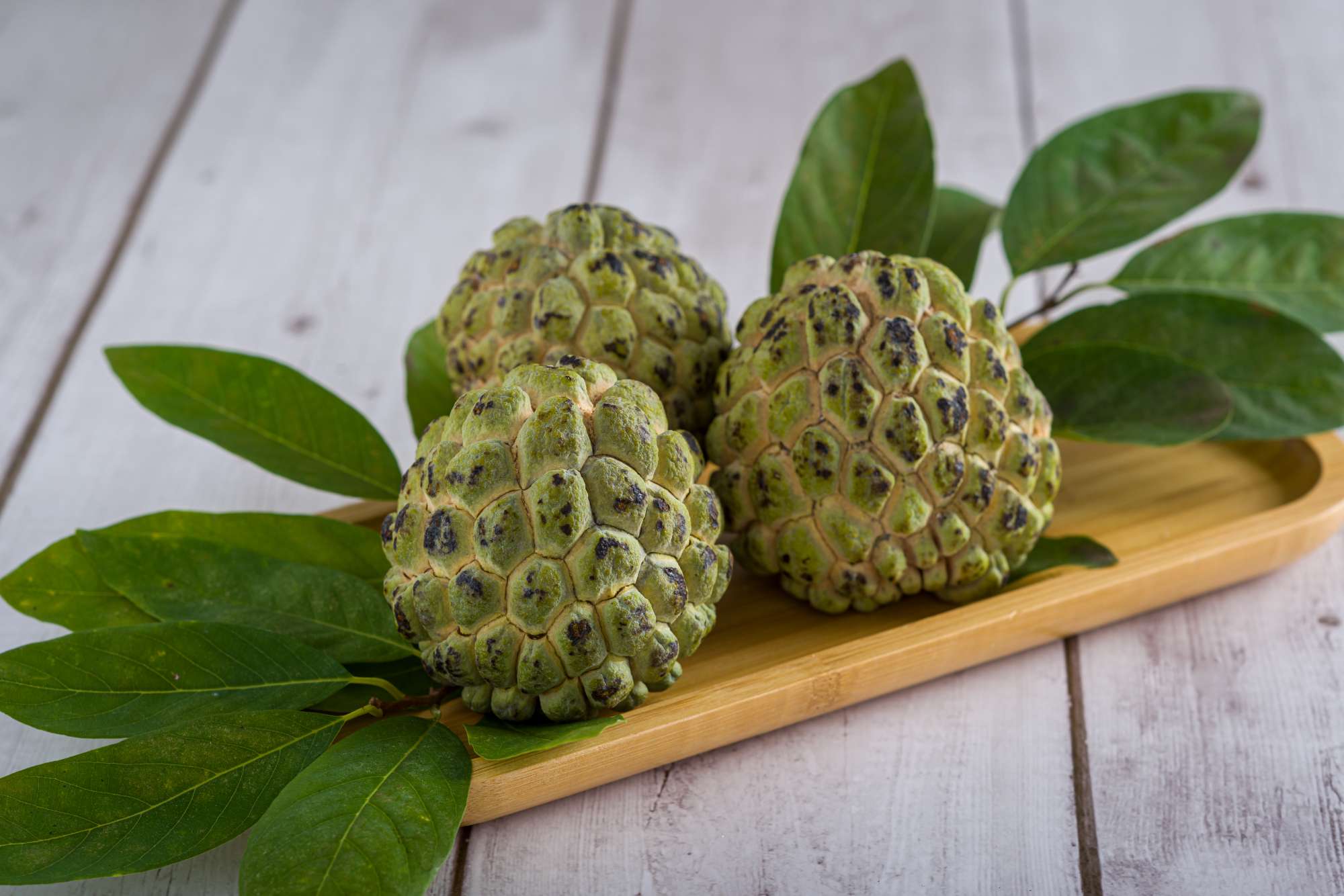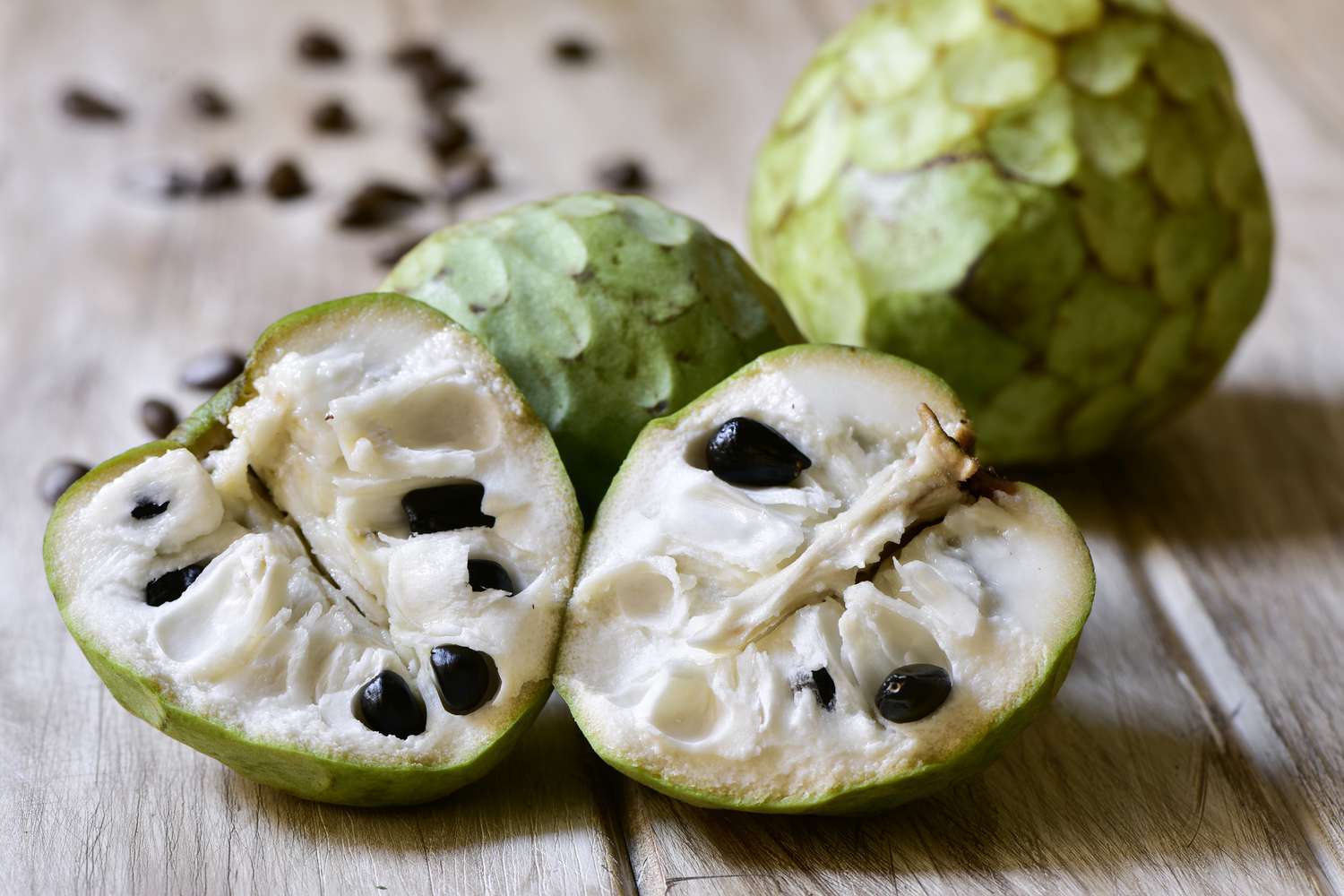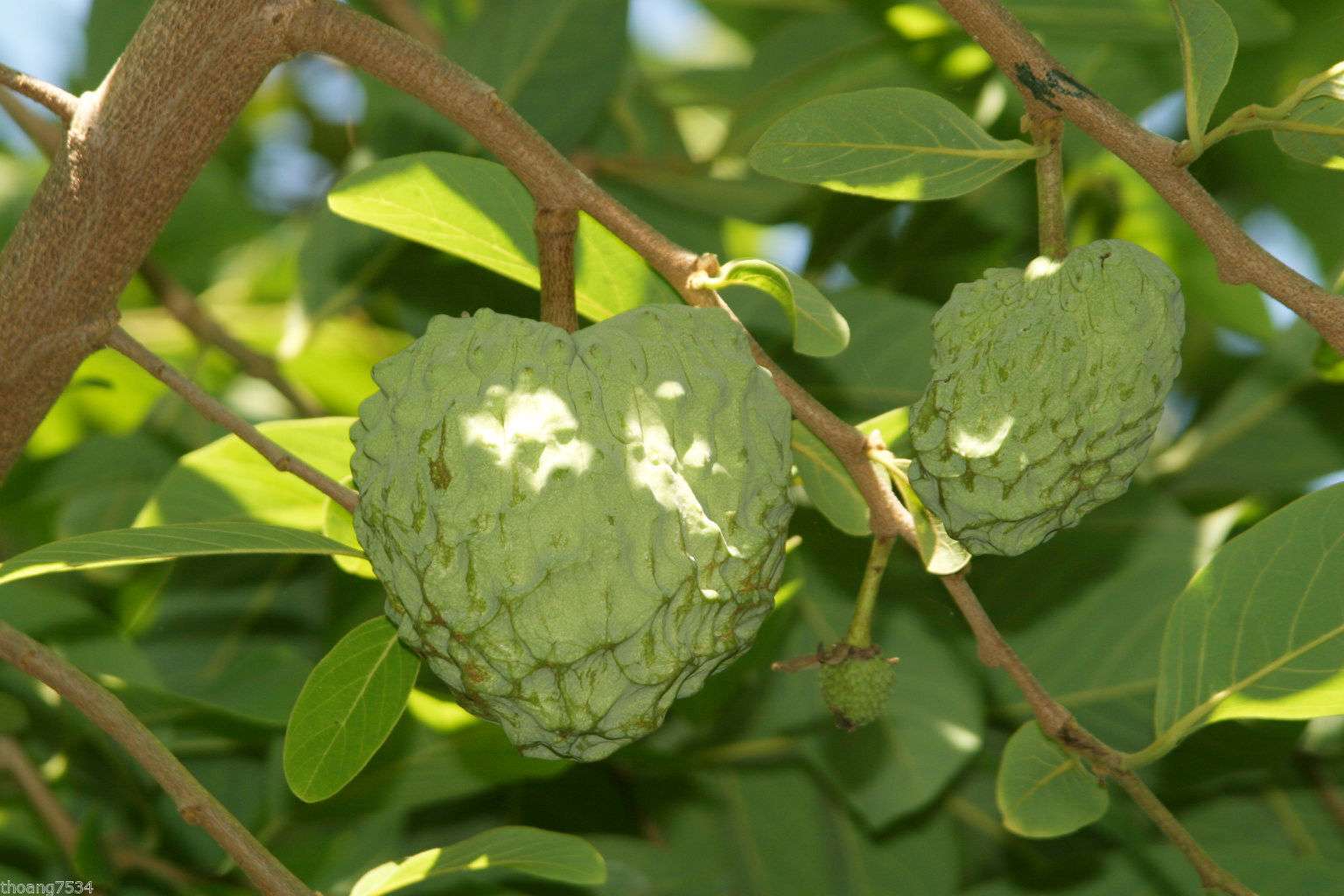Soursop is rich in Vitamin C and many other antioxidants
Soursop is rich in Vitamin C and many other antioxidants
Soursop has a very delicious taste and many nutrients. When combined with a healthy and balanced diet, Soursop will give you a number of essential health benefits.
Soursop is a member of the Annonaceae family. It native to the warm and tropical regions of the Americas. Besides the name soursop, it also has many other names such as guanabana or graviola. Its scientific name is Annona muricata.
Soursop is a very popular fruit that has a delicious flavor and nutritious. It provides a large amount of fiber, is rich in vitamin C and is exceptionally low in calories. Soursop has many uses in traditional medicine. It used to treat many diseases and health because of its powerful nutritional composition. It provides many health benefits.
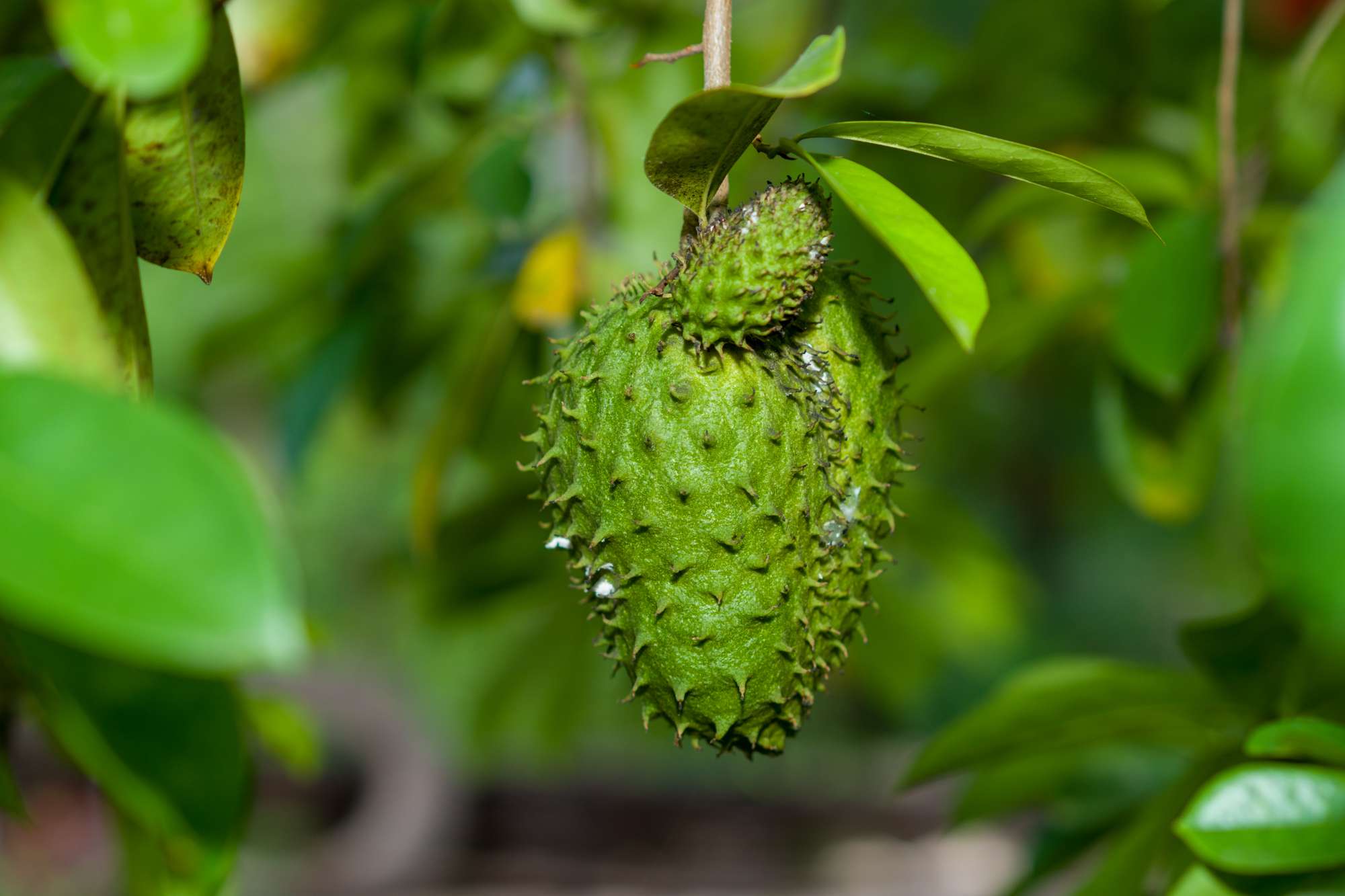
.jpg)
In the soursop plant, it is not only its fruit that gives many health benefits, but many other parts of the plant such as leaves and stems are also used in cooking, medicine and even be applied to the skin.
In recent years, test-tube and animal studies have uncovered many health benefits of soursop, from reducing inflammation to slowing cancer growth.
One serving is about 100grams, Soursop contains:
Calories: 66kcal, Protein: 1gram, Carbs: 16.8grams, Fiber: 3.3grams, Sugars: 13.54grams, Fat: 0.3grams, Water: 81.
Vitamins:
Thiamine (B1): 0.07mg (6%DV†), Riboflavin (B2): 0.05mg (4%DV†), Niacin (B3): 0.9mg (6%DV†), Pantothenic acid (B5): 0.253mg (5%DV†), Vitamin B6: 0.059mg (5%DV†), Folate (B9): 14μg (4%DV†), Choline: 7.6mg (2%DV†), Vitamin C: 20.6mg (25%DV†).
Minerals:
Calcium: 14mg (1%DV†), Iron: 0.6mg (5%DV†), Magnesium: 21mg (6%DV†), Phosphorus: 27mg (4%DV†), Potassium: 278mg (6%DV†), Sodium: 14mg (1%DV†), Zinc: 0.1mg (1%DV†).
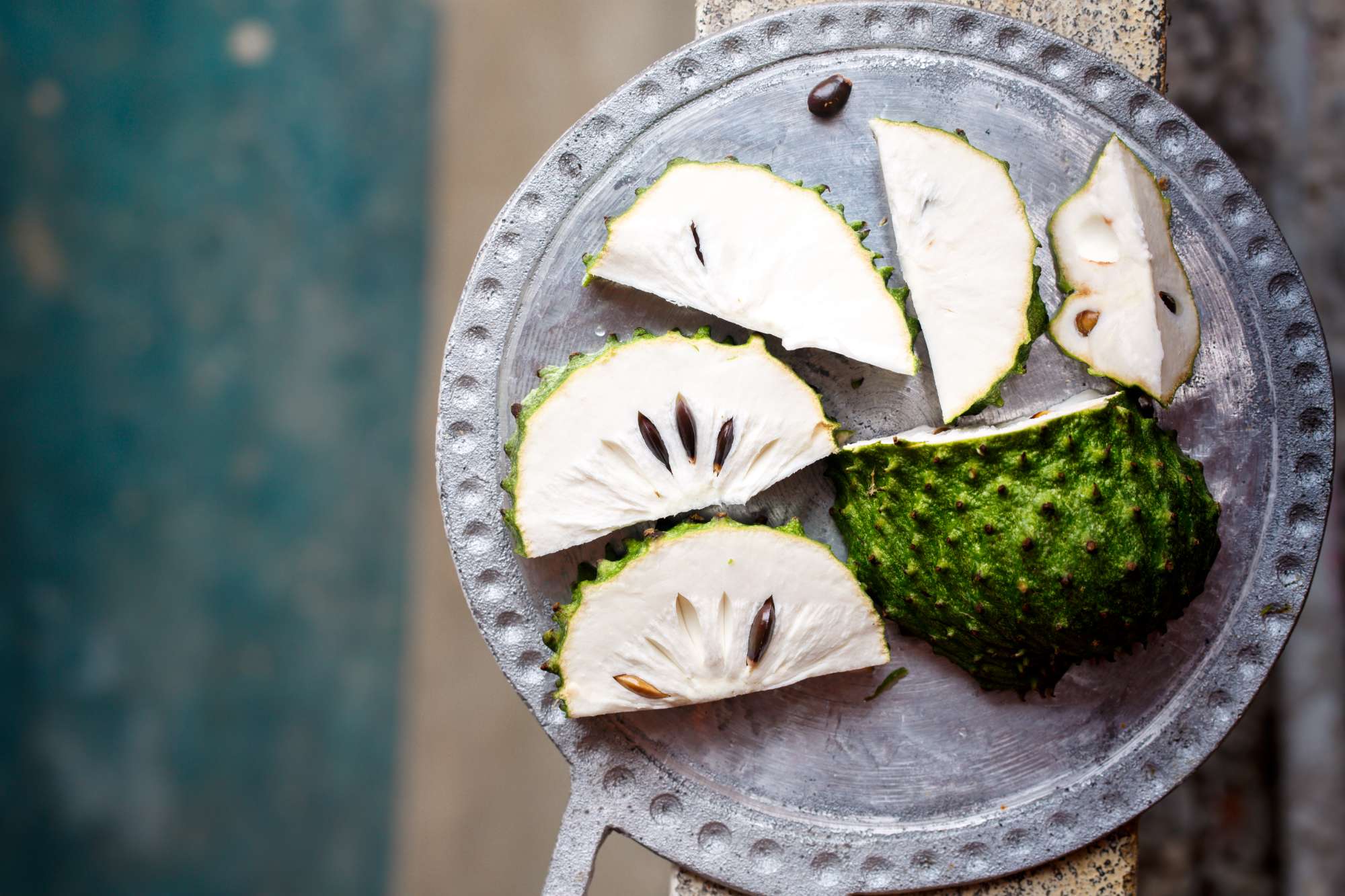
SOURSOP IS RICH IN ANTIOXIDANTS
Soursop is high in vitamin C, an antioxidant known to promote immune health. Vitamins strengthen the immune system, improve resistance to pathogens. It also promotes the destruction of free radicals, helping to protect the skin and cells from environmental oxidative damage.
In addition to Vitamin C, Soursop - both fruit and leaf, also contains many other antioxidants such as phytosterols, tannins and flavonoids.
Antioxidants are compounds that help neutralize harmful compounds called free radicals, which can cause damage to cells.

SUPPORTING A HEALTHY DIGESTION
One whole soursop fruit contains around 83% of your recommended daily allowance of fiber, which is a vital nutrient for your digestive health. Fiber helps to promote regularity and prevent digestive issues such as constipation.
ABILITY TO KILL CANCER CELLS
Researchers have found that soursop may be beneficial in helping to fight and prevent cancer.
One test-tube study treated breast cancer cells with soursop extract. The results showed that soursop can reduce tumor size, kill off cancer cells and enhance the activity of the immune system. Another test-tube study looked at the effects of soursop extract on leukemia cells, which were found to suppress the growth and formation of cancer cells.
However, keep in mind that the most researches is limited to test-tube studies, these are studies looking at a strong dose of soursop extract. Further studies need to look at how eating the fruit may affect cancer in humans.
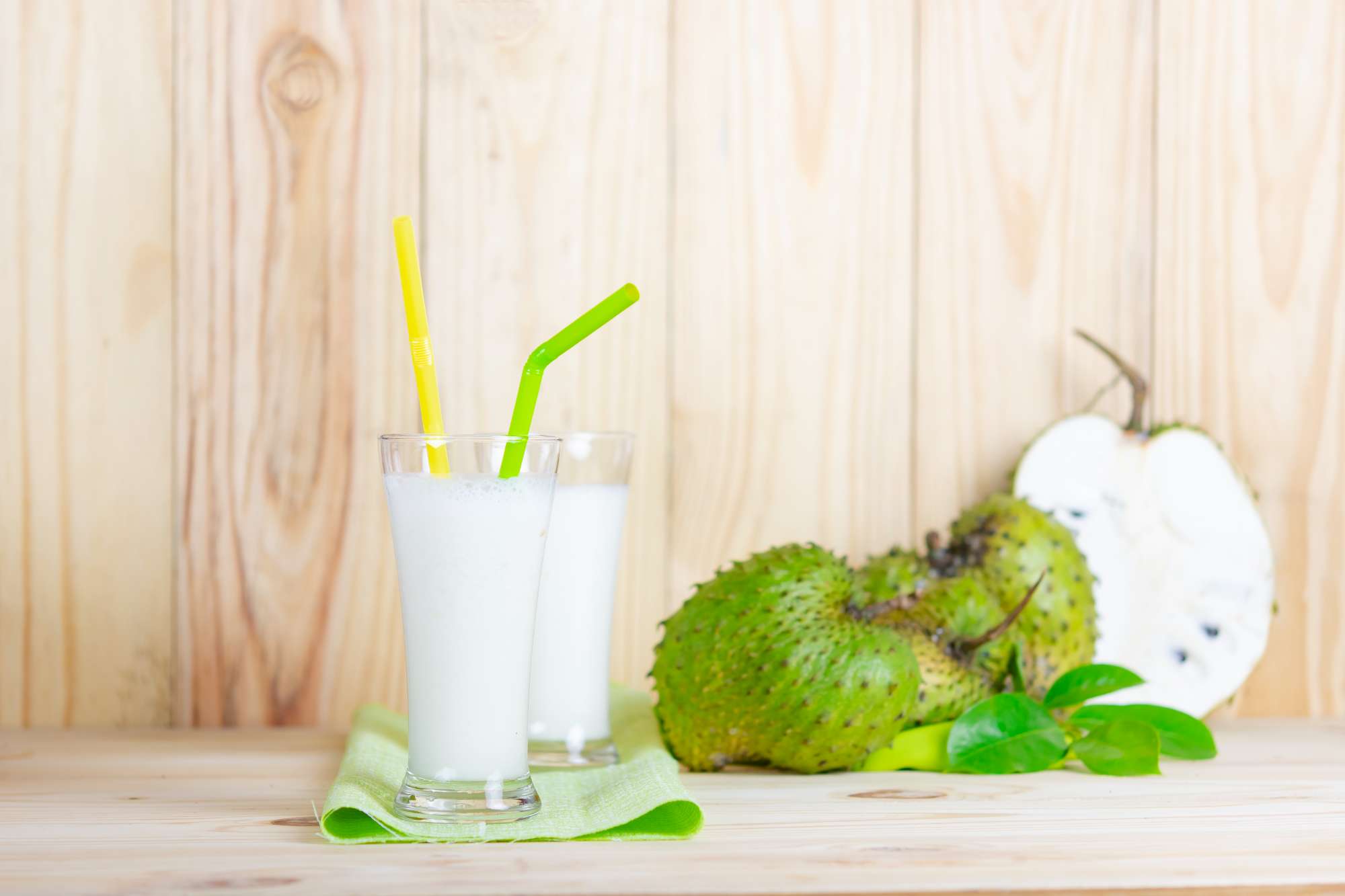
ABILITY TO FIGHT AGAINST BACTERIA
In addition to its antioxidant properties, some studies show that soursop may contain potent antibacterial properties as well.
One test-tube study found that an extract may be able to kill many different types of bacteria, including strains that cause gingivitis, tooth decay and yeast infections. Another test-tube study showed that soursop extract worked against the bacteria responsible for cholera and Staphylococcus infections.
ABILITY TO FIGHTS INFLAMMATION
Antioxidants fight free radicals, helping cells fight damage caused by oxidative stress. Therefore, the antioxidants in soursop can help reduce inflammation in the body.
Inflammation is a normal immune response to injury, but there is growing evidence that chronic inflammation can contribute to illness.
Animal studies show that soursop extract can reduce inflammation and may be helpful in treating certain inflammatory disorders.
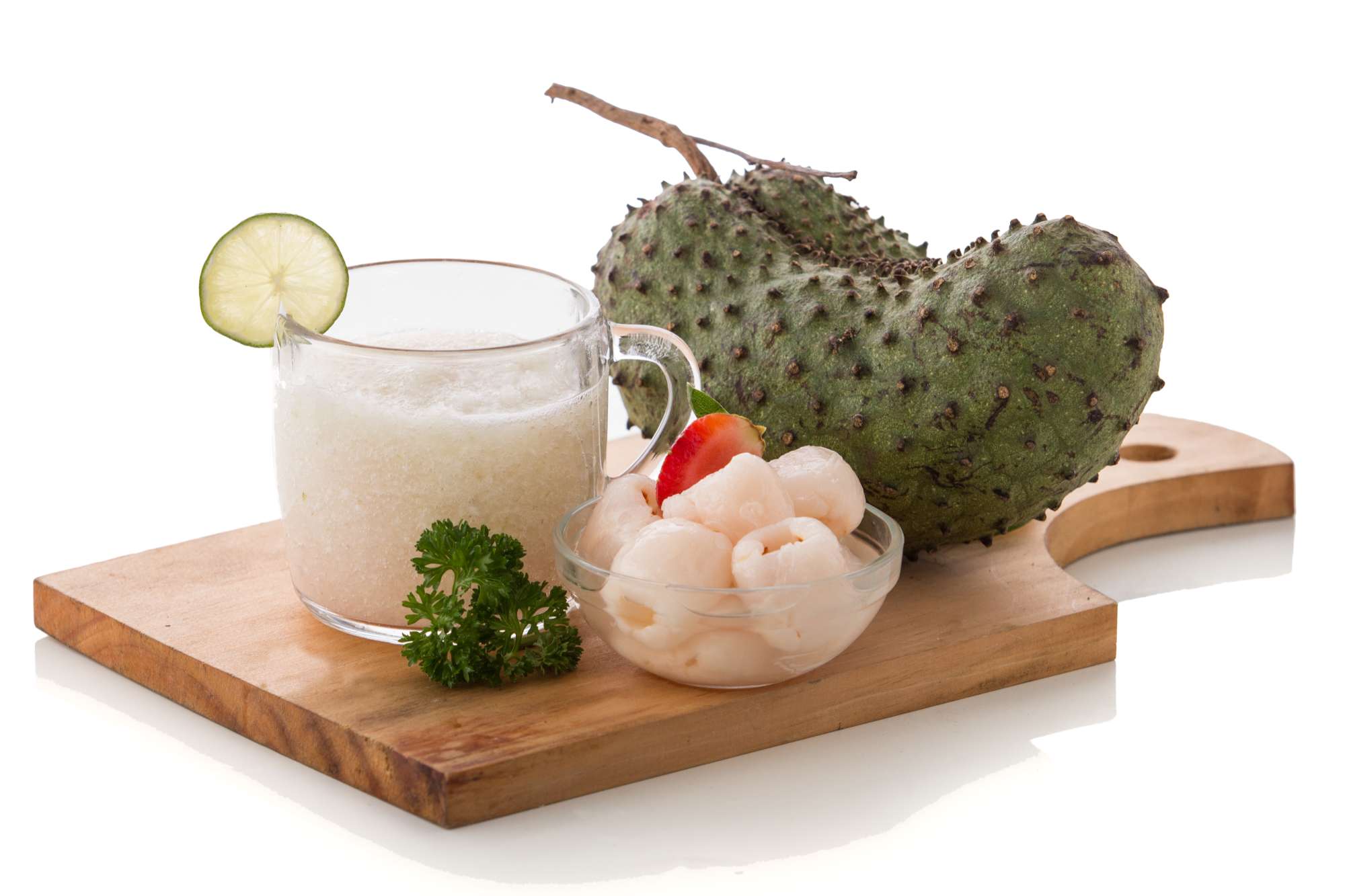
ABILITY TO STABILIZES BLOOD PRESSURE
Soursop has been shown to help regulate blood sugar levels in some animal studies.
High blood pressure may lead to serious issues like heart disease and heart attack. A contributing factor to high blood pressure is sodium intake. Potassium helps your body to get rid of sodium and eases the tension in the walls of your blood vessels, both of which can help to lower your blood pressure. A whole soursop fruit offers approximately one-third to one-half of your recommended daily allowance of potassium.
In one study, diabetic rats were injected with soursop extract for two weeks. Those who received the extract had blood sugar levels that were five times lower than the untreated group. Another study showed that administering soursop extract to diabetic rats reduced blood sugar levels by up to 75%. However, these animal studies use a concentrated amount of soursop extract that exceeds what you might get through your diet.
.jpg)
Although more research on humans is needed, these findings suggest that soursop could be beneficial for those with diabetes when paired with a healthy diet and active lifestyle.
Although the studies were done in test tubes or on animals, but from the evidence of health benefits that soursop can bring, we should also include this fruit in our diet to get those benefits. Soursop is easy to find in markets and fruit shops, and it's also very easy to prepare. Soursop is completely safe to eat raw, like any other fruit. We can also use it as juices, smoothies or desserts.
Compiled and penned by Crocus Media
Products
.jpg)
Chrysanthemum tea
Chrysanthemum tea is a herbal tea with bitter tastes, coolness, heat clearing, helps reduce acne, nourishes the body, cools the liver, detoxifies, curing neurasthenia, support cancer treatment, ... Chrysanthemum tea is made from 100% natural herbs, no preservatives, no flavoring, safe for health.


